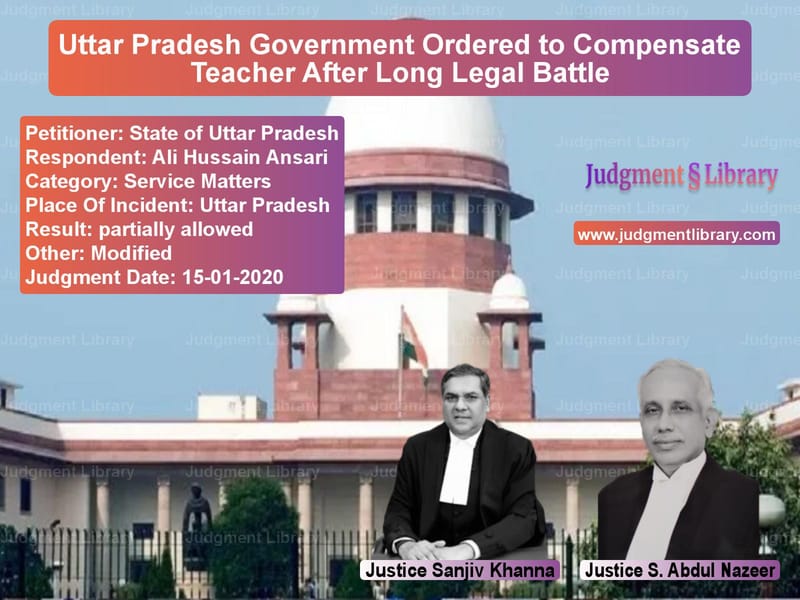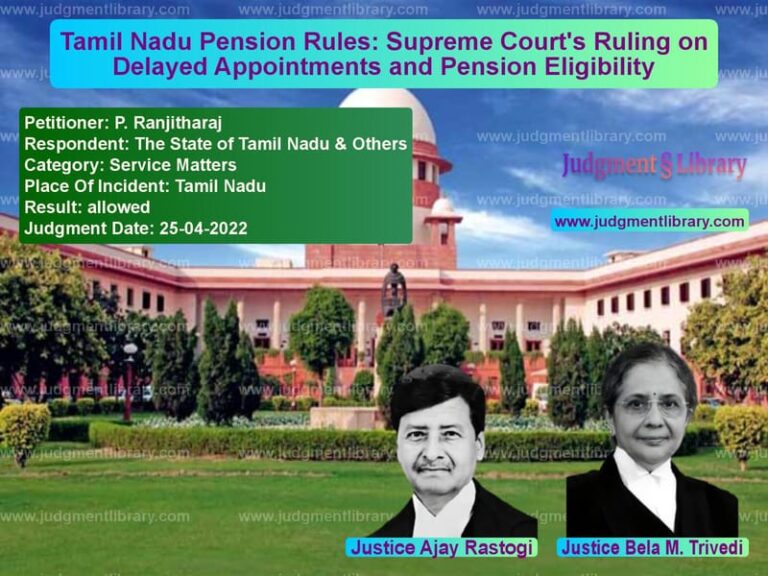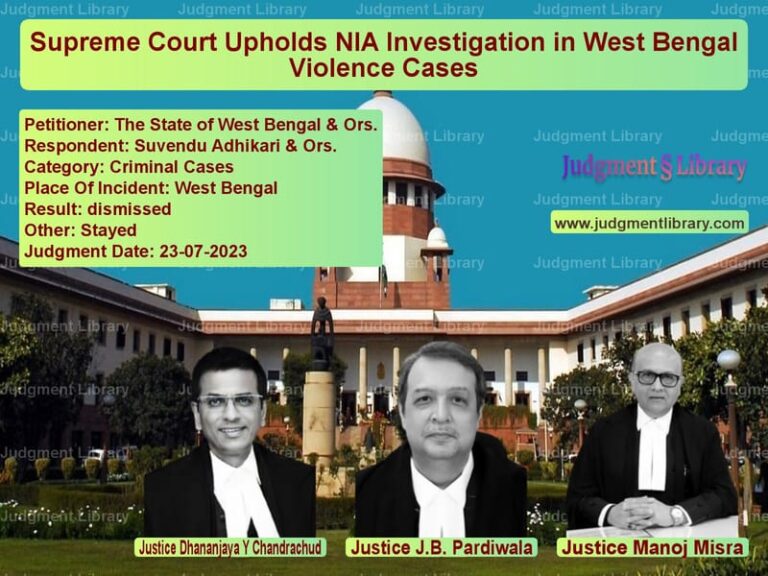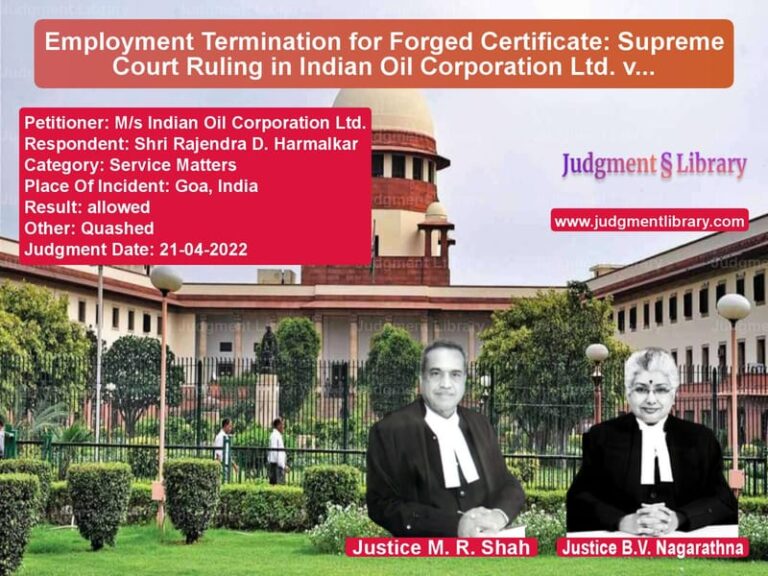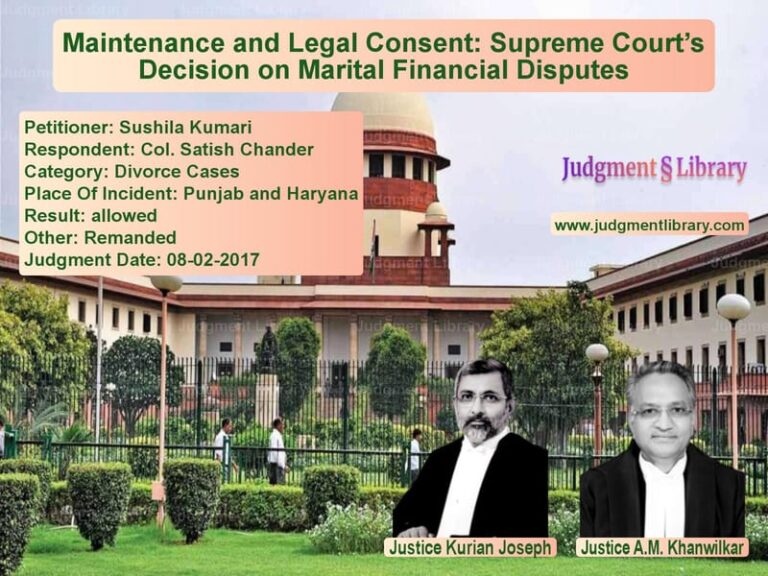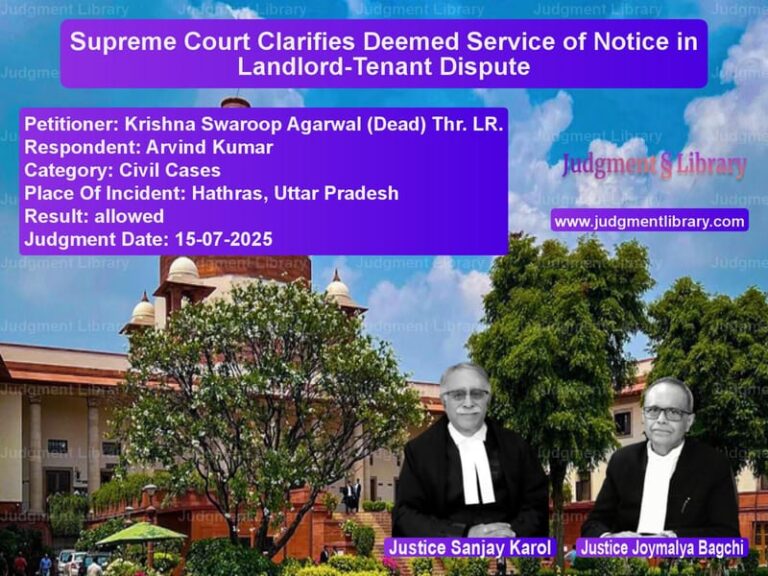Uttar Pradesh Government Ordered to Compensate Teacher After Long Legal Battle
The case between the State of Uttar Pradesh and Ali Hussain Ansari revolves around a legal battle concerning appointment and retirement benefits. The Supreme Court had to decide whether the respondent, Ali Hussain Ansari, was entitled to post-retirement benefits based on his claim that he should be considered in service from 1987, despite only formally joining in 2006.
The Division Bench of the High Court had ruled in favor of Ali Hussain Ansari, granting him retirement benefits, seniority, and promotion benefits, but denying him back wages based on the ‘no work, no pay’ principle. However, the State of Uttar Pradesh challenged this decision in the Supreme Court.
Arguments by the Petitioner
The State of Uttar Pradesh, as the appellant, argued that:
- Ali Hussain Ansari had not worked from 1987 to 2006 and, therefore, could not be considered eligible for post-retirement benefits.
- The appointment was delayed due to legal complications involving another candidate, Shesh Mani Shukla, who had filed a writ petition and continued to work due to interim court orders.
- The lower courts erred in granting retrospective seniority and retirement benefits as it set a bad precedent for employment disputes.
Arguments by the Respondent
Ali Hussain Ansari contended that:
- He was recommended for the position in 1987, but due to the mismanagement and legal disputes initiated by Shesh Mani Shukla, he was deprived of his rightful employment.
- The High Court correctly recognized his claim and granted him consequential benefits, excluding back wages.
- The State was responsible for the delay, and therefore, he should not suffer the consequences of the administrative failure.
Supreme Court Judgment
After hearing both sides, the Supreme Court made the following key observations:
“Keeping in view the aforesaid peculiar factual position, we would modify the directions given by the Court on the payment of retirement benefits with a direction that the first respondent would be paid an amount of Rs. 4,00,000/- (rupees four lakhs only) as compensation. This compensation would be in addition to any other benefits which would be payable to the first respondent in accordance with law treating his date of appointment as 30.06.2006.”
The Court acknowledged that the case was unique as another individual had occupied the post for many years under court orders. Instead of granting full retirement benefits from 1987, the Court ruled that Ali Hussain Ansari would receive a compensation of Rs. 4,00,000/- in addition to other benefits from his official date of appointment in 2006.
Final Outcome
The Supreme Court’s ruling provided a balanced resolution:
- Ali Hussain Ansari was not entitled to full retirement benefits from 1987, as he had not worked during that period.
- However, recognizing the unfair delay caused by the legal dispute, the Court granted him Rs. 4,00,000/- in compensation.
- The State was ordered to pay this amount within six weeks, failing which an interest of 10% per annum would apply.
Thus, while the appeal by the State of Uttar Pradesh was partially allowed, the Court ensured that justice was served by compensating the respondent for the delay in his appointment.
Petitioner Name: State of Uttar Pradesh.Respondent Name: Ali Hussain Ansari.Judgment By: Justice Sanjiv Khanna, Justice S. Abdul Nazeer.Place Of Incident: Uttar Pradesh.Judgment Date: 15-01-2020.
Don’t miss out on the full details! Download the complete judgment in PDF format below and gain valuable insights instantly!
Download Judgment: State of Uttar Prade vs Ali Hussain Ansari Supreme Court of India Judgment Dated 15-01-2020.pdf
Direct Downlaod Judgment: Direct downlaod this Judgment
See all petitions in Employment Disputes
See all petitions in Pension and Gratuity
See all petitions in Promotion Cases
See all petitions in Judgment by Sanjiv Khanna
See all petitions in Judgment by S. Abdul Nazeer
See all petitions in partially allowed
See all petitions in Modified
See all petitions in supreme court of India judgments January 2020
See all petitions in 2020 judgments
See all posts in Service Matters Category
See all allowed petitions in Service Matters Category
See all Dismissed petitions in Service Matters Category
See all partially allowed petitions in Service Matters Category

